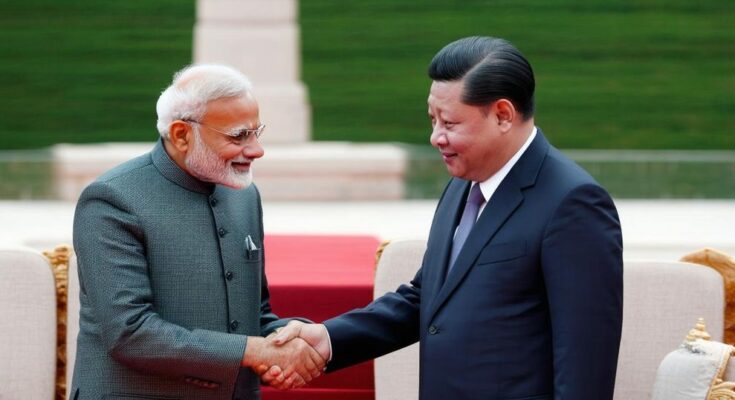Indian Prime Minister Narendra Modi and Chinese President Xi Jinping held their first formal meeting since the 2020 Galwan Valley clash during the Brics summit in Russia. They discussed recent agreements on troop disengagement and the need to restore dialogue between their nations to resolve ongoing issues stemming from decades of border tensions. Both leaders highlighted the importance of trust and mutual respect as they move towards stabilizing relations.
In a significant development for India-China relations, Prime Minister Narendra Modi and President Xi Jinping convened on the periphery of the Brics summit in Russia, marking their first formal meeting since the heightened border tensions that sharply escalated in 2020. The leaders acknowledged recent agreements regarding troop disengagement and the need to resume ongoing dialogues aimed at reconciling their differences. The backdrop of this meeting is a complex history shaped by a poorly defined territorial border spanning 3,440 kilometers between the two nations. Following confrontations, including the devastating 1962 war, skirmishes have continued to plague India-China relations, most notably the fatal clash in Galwan Valley that resulted in the loss of approximately two dozen soldiers from India and several from China. The tensions persisted following India’s revocation of Article 370 in 2019, which stripped Kashmir of its autonomy—a move condemned by China. Although there was a retreat of troops subsequent to the agreement on de-escalation, further clashes arose in Sikkim and Tawang in subsequent years. Throughout the last few years, the deterioration of diplomatic relations impacted economic ties, as India imposed restrictions on Chinese investments and applications, highlighting the shifting landscape of their bilateral relationship. However, developments preceding the recent meeting suggested a thaw as both leaders emphasized a commitment to restoring trust and stabilizing relations. Leaders expressed optimism regarding future steps, including commitments for their special representatives to seek mutual solutions to the border disputes, asserting the necessity of trust and respect in their interactions. Xi underscored the importance of cooperation between their countries for peace in a broader context, reminding that they must lead by example amongst the developing nations.
The context of the Modi-Xi meeting is rooted in decades of frayed relations between India and China, primarily over territorial disputes. The two countries share a long and complicated border that has been a source of conflict since the 1962 Sino-Indian War, where India faced a significant defeat. Since then, various confrontations have emerged, particularly in disputed regions like Ladakh, which exacerbated tensions significantly in 2020. India’s subsequent political decisions concerning Kashmir and military standoffs further strained diplomatic relations. This meeting is viewed as a pivotal step in attempting to stabilize and improve bilateral relations amidst a backdrop of historical rivalry and recent military confrontations.
The recent formal meeting between Prime Minister Modi and President Xi represents a critical moment in India-China relations, signaling a potential pathway towards reconciliation after years of tension. The leaders’ commitment to dialogue and resolving border issues indicates a mutual recognition of the need for stability and trust. While the challenges ahead remain significant, both nations appear willing to engage in dialogue and seek resolutions that may foster improved relations in the future, which holds implications not only for bilateral ties but also for regional security and global cooperation.
Original Source: www.bbc.com




